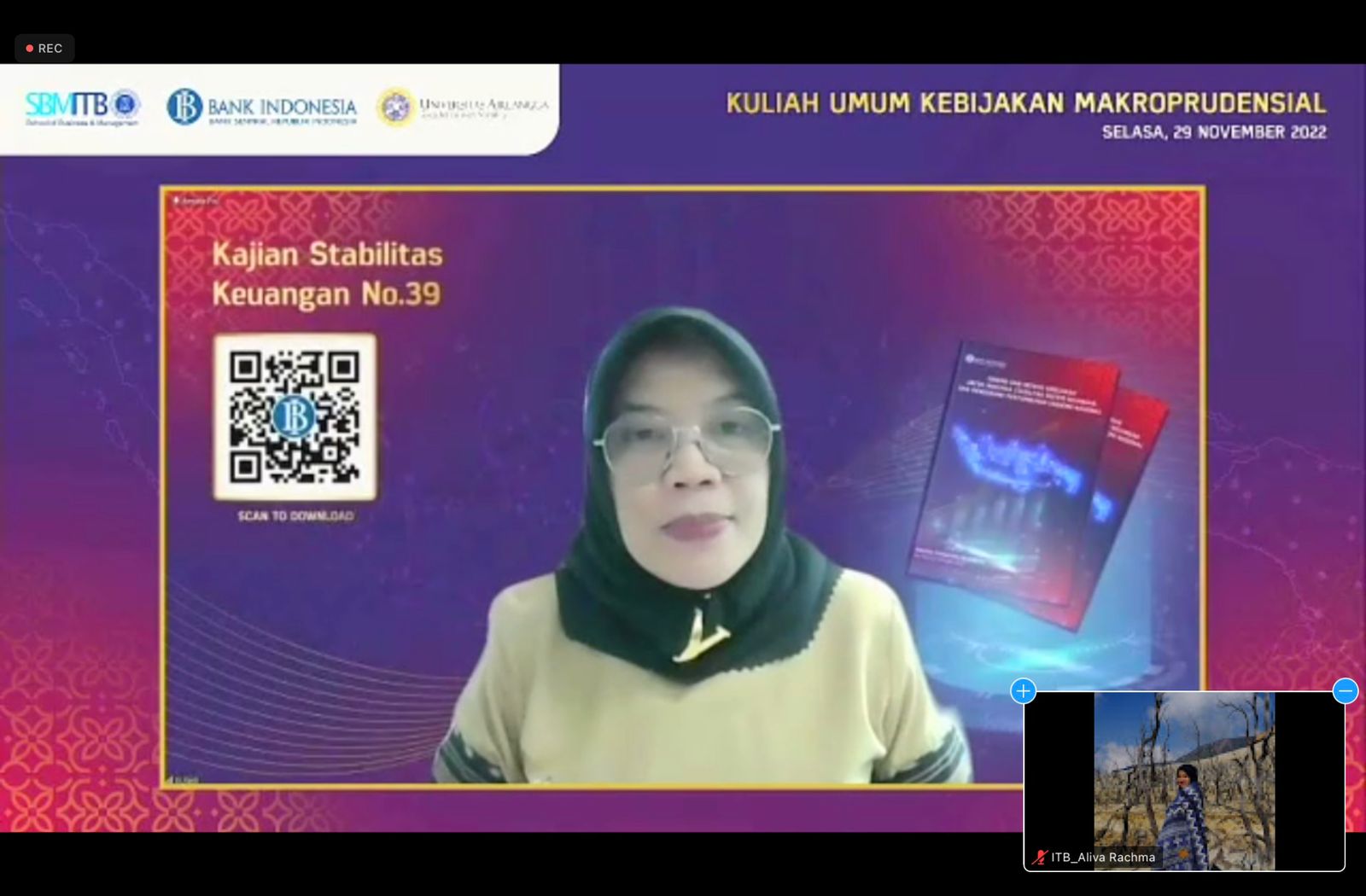Hundred and Fifty participants from Airlangga University (Unair), Institut Teknologi Bandung (ITB), and the general public attended the Macroprudential Policy Public Lecture. The event organized by Bank Indonesia on Tuesday, 29 November 2022, through a Zoom Meeting, aims to socialize the role of one of Bank Indonesia, namely macroprudential policy.

The event was opened by Mal Isniani SM Yanti, Director of the Department of Macroprudential Policy at Bank Indonesia, Sylviana Maya Damayanti, Assistant Professor in Digital Financial Literacy at SBM ITB Jakarta Campus, and Rossanto Dwi Handoyo, the Head of the Department of Economics at Airlangga University.
The event was divided into three sessions. The first discussed the concept of macroprudential policy in Indonesia, followed by macroprudential policies in Indonesia, and finally, the latest developments in the financial system.
Bank Indonesia has three policy pillars to achieve and maintain rupiah stability: Monetary Policy, Macroprudential Policy, and Payment System Policy. Macroprudential policy is still unfamiliar to the public, even though monetary policy and microprudential policy are insufficient to maintain macroeconomic stability, so macroprudential policy is needed to promote financial system stability.
There are three main pillars of macroprudential policy: Forward Looking, Dynamic and Measurable Macroprudential Policy, Dynamic and Systemic Risk Oriented Financial Sector Surveillance, and Synergy of Internal and External Financial System Stability (SSK) policies. SSK is a joint mandate.
There is a Financial System Stability Committee (KSSK) which has their respective roles in safeguarding and maintaining SSK, including the Ministry of Finance with its fiscal policy, Bank Indonesia with its three roles, the Deposit Insurance Corporation with deposit insurance and bank resolutions, and the Financial Services Authority with policies microprudential. KSSK routinely holds meetings to monitor and coordinate, even though each meeting does not need to produce a policy.
Macroprudential policy transformation is urgent in responding to the need to address or respond to future policy challenges and forecasts. Challenges and predictions for the future include strengthening the digitalization of the financial sector, the strategic role of consumer inclusion and protection, and Environmental, Social, & Governance (ESG).
According to Bank Indonesia, post-pandemic Indonesia’s economic recovery is going well. This was marked by credit growth reaching 19.5% (YoY) in October 2022, higher than during the pandemic.
Third-Party Funds (DPK) increased, mainly reflected in the increase in TPF growth in the state-owned banks and current corporate accounts.
Banking resilience is maintained, and banking capital remains strong in anticipating the risk of deteriorating macroeconomic conditions, potential inflation, and the risk of relapse of credit restructuring.
Financial inclusion has also increased, and Micro and Small and Medium Enterprises (MSMEs) loans grew high in October 2022, reaching 17.5%. Banking interest rates remain accommodative, and the green financial economy grows positively, reaching 5.44% YTD.
The session was closed with question and answer, with five participants from Airlangga University and ITB enthusiastically asked questions.




